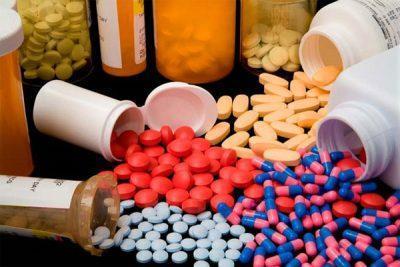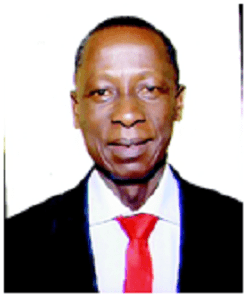The late chairman of the Association of Community Pharmacists of Nigeria (ACPN) Kogi State, Pharm. David Olatunde Osasona, before his demise raised the alarm that except the Federal Government urgently provides forex for pharmaceutical companies dealing in drug importation, Nigerians are set to experience severe scarcity of essential medicines.
Speaking with Pharmanews in an exclusive interview before his death, Pharm. Osasona, who is also the managing director of Dave-Mercy Pharmacy, Lokoja, further tasked the government to urgently tackle the challenge of chaotic drug distribution, warning that the current distribution system is inappropriate for ethical distribution of drugs to Nigerians, as too many non-pharmacists are involved in it.
Osasona equally urged the FG to review the structure of the National Health Insurance Scheme (NHIS), noting that while some sets of healthcare providers are feeding fat on the scheme, others like pharmacists are getting peanuts for services rendered.
While lamenting that the present economic recession has seriously affected every sector of the economy, including health, the pharmaceutical entrepreneur observed that the NHIS that could have given succour to the people in this period is not being properly managed.
He disclosed that many people under the scheme have resorted to buying medicines directly with their money.
Below are excerpts from interview:
Tell us about your pharmacy – when did you establish it and how was it at the beginning?
My pharmacy, Dave-Mercy Pharmacy was established in 1992 at Jebba, Kwara State with a starting capital of about 14,500 naira. It was this money that I worked with till the business grew big, with two branches in Lokoja, Kogi State. I depended solely on the support from God as it took a great deal of perseverance and commitment to weather the storm; but I thank God that today it has become a success story.
I must be sincere, it wasn’t easy at the beginning but with passion for the profession and commitment towards achieving my goal, coupled with the grace of God, the business was nurtured and it is now matured, and we pray it grows bigger than this by the grace of God.
Tell us about the activities and achievements of ACPN Kogi since you took over as chairman.
I took over ACPN chairmanship two years ago, precisely 26 March 2014. Within this period, ACPN Kogi has impacted the community by making the public to know the roles of a pharmacist, We have carried out series of programmes in the media to educate people on vital health issues, such as HIV/AIDs, Hepatitis B and so many others.
We have also campaigned against drug abuse and misuse among youths, especially abuse of drugs like Tramadol, Codeine and many others. We have worked in cooperation with the National Drug Law Enforcement Agency (NDLEA), National Agency for Food and Drug Administration and Control (NAFDAC) and the Kogi State Ministry of Health, to educate the public on health issues,
How big is the challenge of running such an important association as ACPN, and how have you been coping?
Leading an association such as ACPN is not an easy task, especially as many members always prefer to face their business, rather than activities that can project the image of the association in the community.
As a leader, my ultimate goal has been to encourage my members to attend our general meetings, and to persuade them to respond to this call has been a great challenge to me. In reality, the general meetings usually afford us the opportunity to iron out issues bordering on the progress and challenges of the profession; so it is a good avenue to rub minds and share ideas. It’s a gthering where we all work towards the progress of the association.
How is the current economic recession affecting community pharmacy in your state and how are your members coping?
The recession is biting hard everywhere and pharmacy profession is not exempted. Community pharmacy practice is one profession that makes one to be closer to the masses more than any other profession. As such, it is impossible for us to close our eyes to the plight of the poor and the masses. Consequently, we have so many instances whereby we sell on credit to our customers.
There are civil servants that have not received salary for the past 12 months; yet they get sick and need drugs as they need food. In a situation like that, you cannot but part with your drugs on credit because of the sympathy you have for the people; in fact, some services like blood pressure and blood sugar monitoring are rendered free of charge. So, life has not been easy for the community practitioners, especially in this recession period, but life must continue.
What areas of pharmacy profession do you think the stakeholders in the profession need to tackle urgently?
The issue of our drug distribution channel is an urgent issue that needs immediate attention of those in authority. There are too many people who are not pharmacists but are feeding fat on our business, and something urgent must be done about this before they chase us out of business.
Also, no pharmacist has benefitted as such from the National Health Insurance Scheme (NHIS). This needs to be addressed as well because while some sets of healthcare providers are feeding fat, others are simply getting peanuts.
Additionally, the federal government’s forex policy is affecting drug importation and it should be looked into.
What can you say about happenings in the healthcare sector in Kogi State?
The present economic recession has seriously affected every sector of the economy, including health sector. However, how do you expect a government that cannot pay workers’ salary for almost a year invest anything reasonable in the healthcare sector? And the NHIS that could have given succor to the people at this period is not properly managed, as many people under the scheme are usually compelled to buy the bulk of the medicine they need with their money outside the medical facility they are using.
In a saner clime, those under health insurance should benefit more in terms of adequate healthcare provision as they are paying every month for that purpose. So, to cut the long story short, healthcare sector is not adequately funded in this state and something must be done about it. The health and well-being of people should be paramount in the mind of the government.
If you were to advise the federal government on measures or policies that can help improve healthcare in Nigeria, what would be your advice?
I would advise the government to relax policy on forex, so that dollars will be available for the importation of essential drugs because, if care is not taken, very soon the country may face a challenge of shortage of drugs in the healthcare sector.
When our leaders fall sick, they travel abroad to take care of their health; while the common man is left with no other option than to resort to self-medication, herbal practitioners and quacks.
Also, the chaotic drug distribution chain should be urgently looked into to save the public from consuming fake and unwholesome medication, while health workers’ emoluments should be properly taken care of to prevent incessant strikes in the health sector.
How do you see the annual PSN and ACPN national conferences?
For the past 10 years I have not either of the Pharmaceutical Society of Nigeria (PSN) and Association of Community Pharmacists of Nigeria (ACPN)’s conferences. And, year by year, there have been improvements. Every pharmacist should participate in these conferences because the programmes are very educative and informative. They provide occasion for meeting old classmates and friends and as the conferences move from one state to another they provide avenues for making one to know many other part of the country.












tadalafil generic name – site tadalafil 10mg